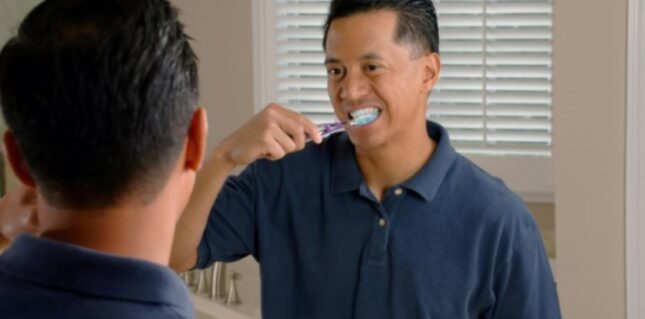Smil, Unit 69-70, Dockside Outlet Shopping Centre, Maritime Way, St Mary's Island, Chatham, ME4 3ED
Smil, Unit 69-70, Dockside Outlet Shopping Centre, Maritime Way, St Mary's Island, Chatham, ME4 3ED

Do you think that brushing your teeth twice a day is enough to maintain good oral health? If your answer is yes, you may want to reconsider. While brushing is a valuable part of maintaining your smile, it’s only one piece of the puzzle.
There are many other habits that contribute to a healthy mouth. Let our experienced team talk you through why brushing alone falls short and what else you can do to keep your smile full of life.
Brushing your teeth effectively removes food particles and plaque from the surfaces of your teeth. However, brushing alone cannot remove all of this plaque, especially in hard-to-reach areas and along the gumline. Plaque is a sticky film of bacteria that constantly forms on your teeth. If it is not adequately removed, it can harden into tartar – and only one of our dentists can remove this.
The buildup of tartar and plaque can lead to gum diseases, such as gingivitis and periodontitis. Gingivitis, the inflammation of the gums, is the earliest stage of gum disease and is usually reversible with good oral hygiene. However, if left untreated, it can progress to periodontitis, a more severe form of gum disease that can cause tooth loss and damage to the bone that supports your teeth.
Did you know that 27% of us lie to our dentists on a regular basis, telling them that we floss every day?
Flossing is an important part of oral hygiene that complements brushing. It helps to remove plaque and food particles from between the teeth and below the gumline, areas that a toothbrush alone can’t reach. By neglecting to floss, you’re leaving a large percentage of your tooth surfaces uncleaned, which can lead to cavities and gum disease.

Many people overlook their tongue during their oral hygiene routine. The tongue can harbour bacteria, contributing to bad breath and the buildup of plaque on teeth. Brushing your tongue or using a tongue scraper can help to remove this bacteria, reducing the risk of oral health issues.
Your oral health is intricately linked to your overall health. Poor oral hygiene can contribute to several health problems, such as heart disease and diabetes. So, establishing a good oral hygiene routine, with several key steps on top of brushing, can have far-reaching benefits beyond a healthy mouth.
Given that brushing alone is not sufficient, what additional practices should you incorporate into your daily routine?
As previously mentioned, flossing is essential for removing plaque and food particles from between your teeth and below the gumline. Floss at least once a day, ideally before bedtime, to ensure that these hard-to-reach areas are clean. Using the correct flossing technique is important to avoid damaging your gums. Slide the floss gently between your teeth, curve it around each tooth and then move it up and down to remove any debris.
Even if you think you’ve mastered taking care of your teeth at home, you still need routine dental appointments.
Regular visits to our Chatham practice allow our dentists to detect early signs of cavities, gum disease and other oral health issues before they become severe. We usually recommend a check-up every six months, but this can vary depending on your individual needs. You should also arrange to see one of our dental hygienists, who can provide you with a professional cleaning, removing tartar buildup and polishing your teeth. During these visits, we offer advice and guidance on how to take care of your smile at home.
Tongue scrapers are tools designed to remove bacteria and food debris from the surface of your tongue. Using a tongue scraper can help reduce bad breath and improve overall oral hygiene. Incorporate tongue scraping into your daily routine to maintain a cleaner mouth.

We know that you’re tired, but you should never go to bed without brushing your teeth. Plaque forms throughout the day, no matter what you eat, and if this plaque is not removed before you go to bed, it can lead to issues like gum disease. Make sure to brush for at least two minutes each time, covering all surfaces of your teeth.
Chewing sugar-free gum can help enhance your oral health, especially in situations where you can’t brush your teeth after meals. Chewing gum stimulates saliva production, which helps neutralise acids produced by bacteria, wash away food particles and strengthen tooth enamel.
Don’t settle for an incomplete oral hygiene routine. Let our dedicated team help you achieve a healthier smile. If you have more questions about whether brushing your teeth alone is enough, please do not hesitate to get in touch. Call us today on 01634 756 536 for advice and guidance on taking care of your teeth at home. We look forward to hearing from you.
Back to BlogSmil, Unit 69-70, Dockside Outlet Shopping Centre, Maritime Way, St Mary's Island, Chatham, ME4 3ED

